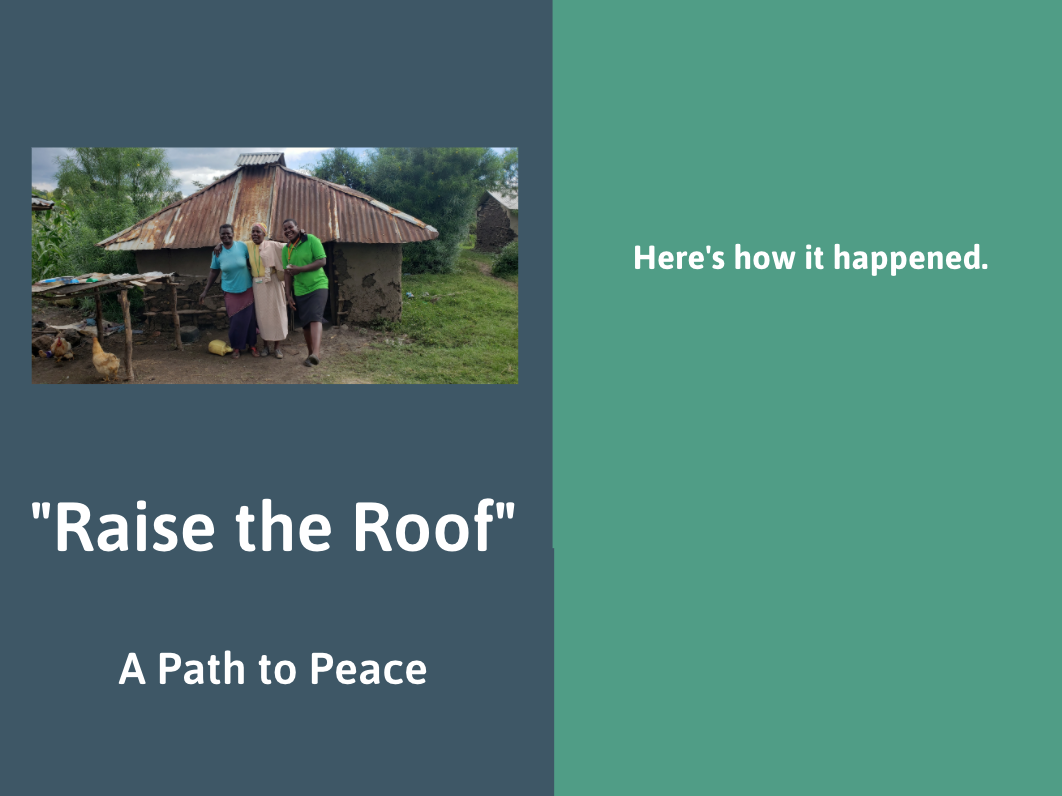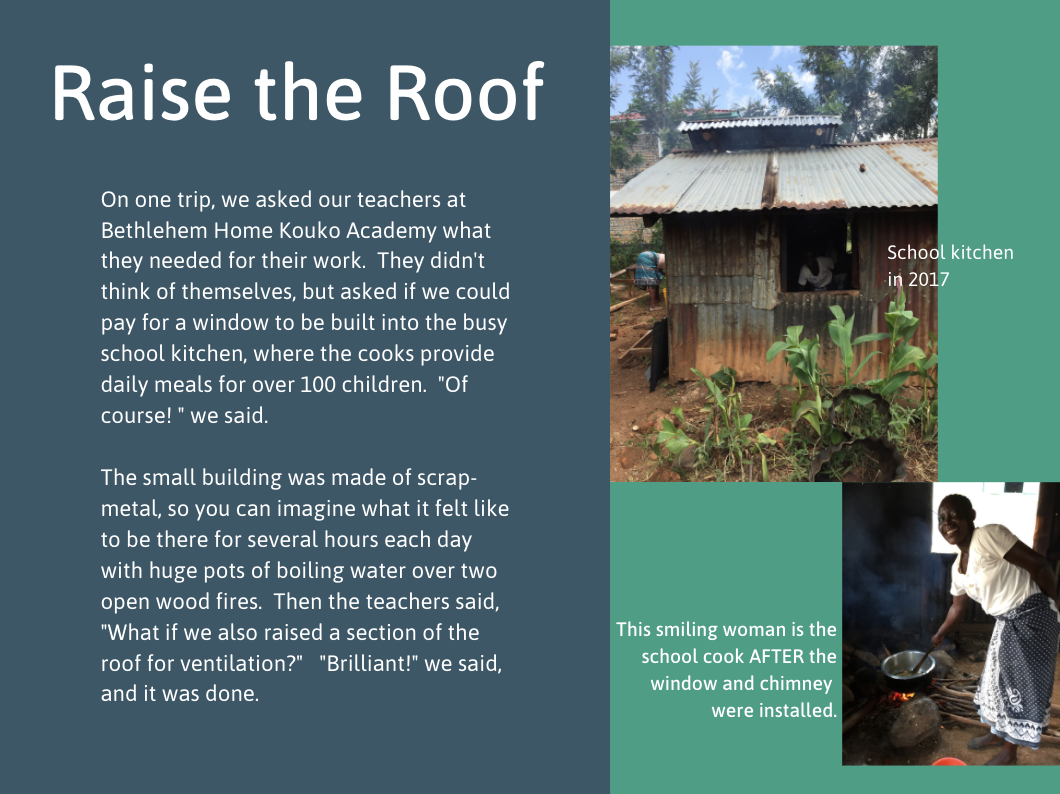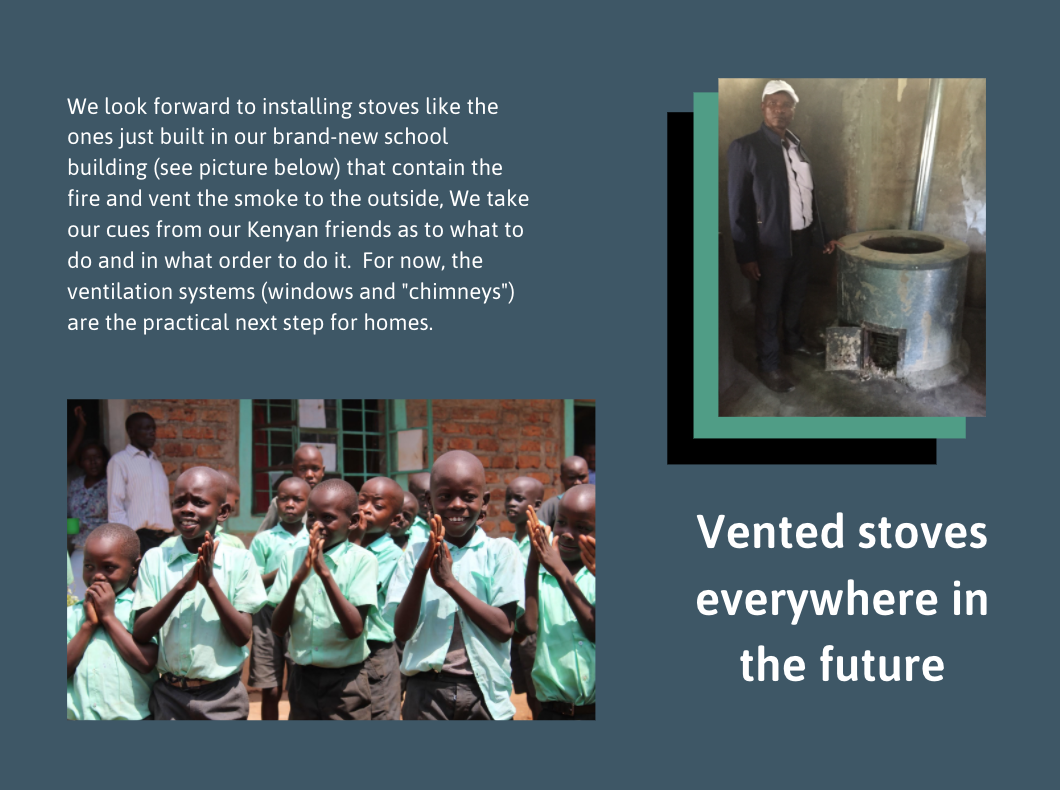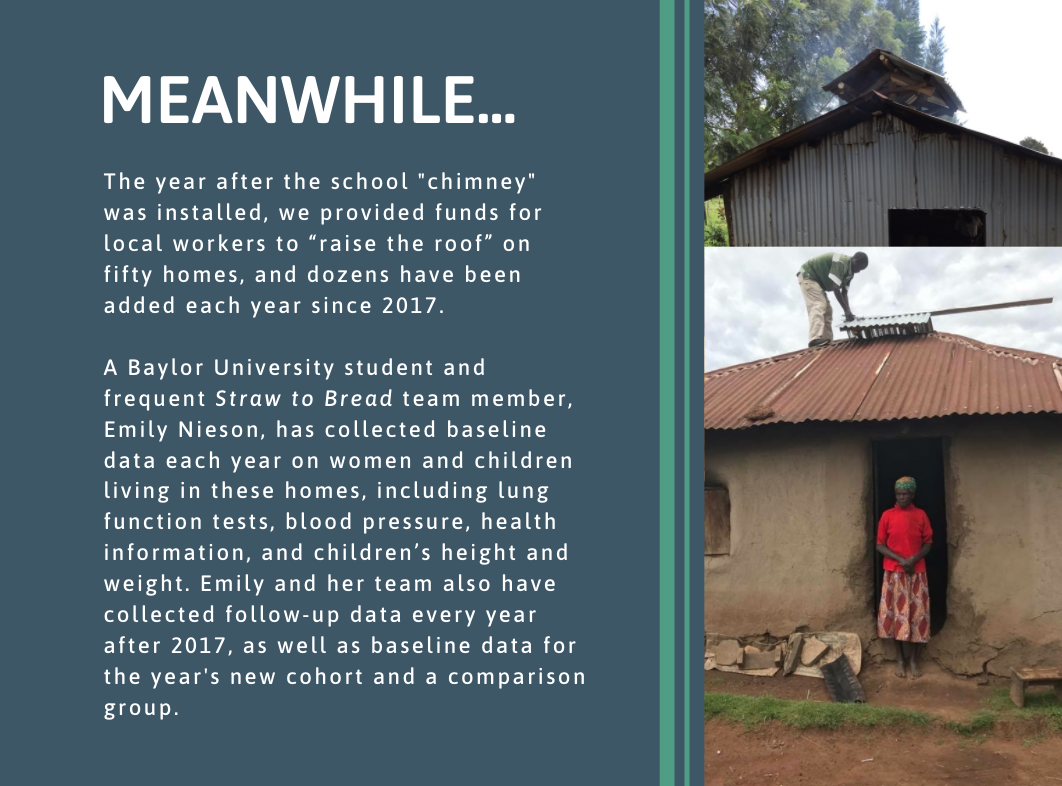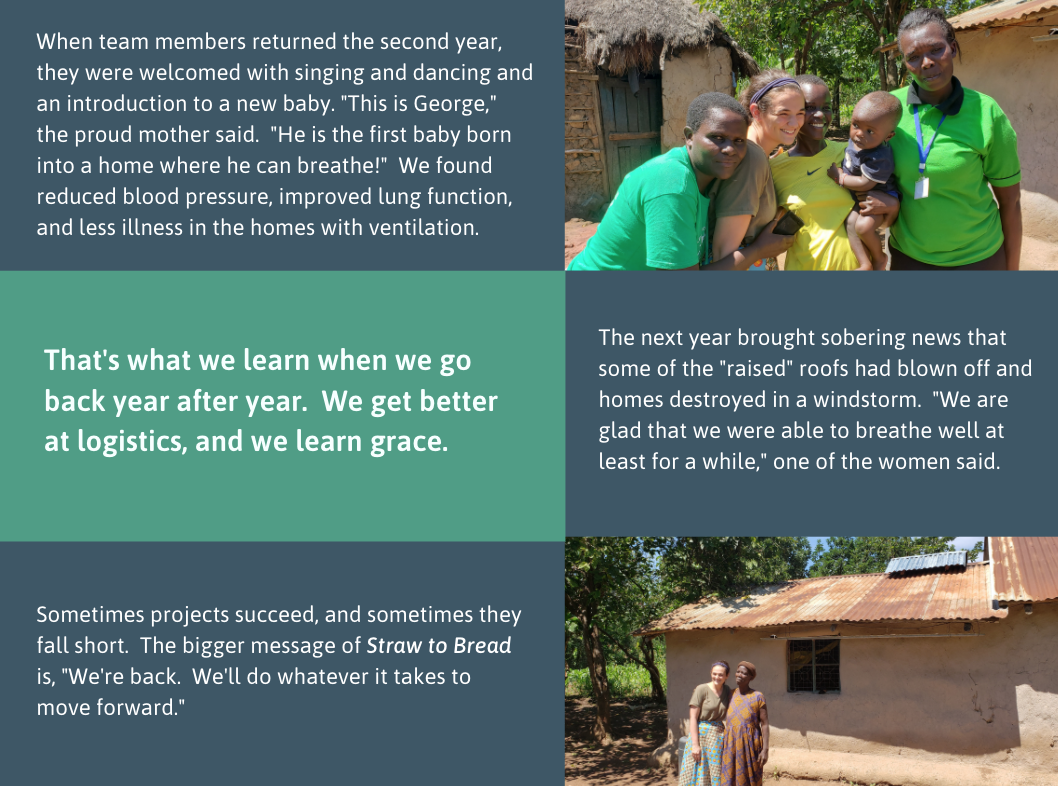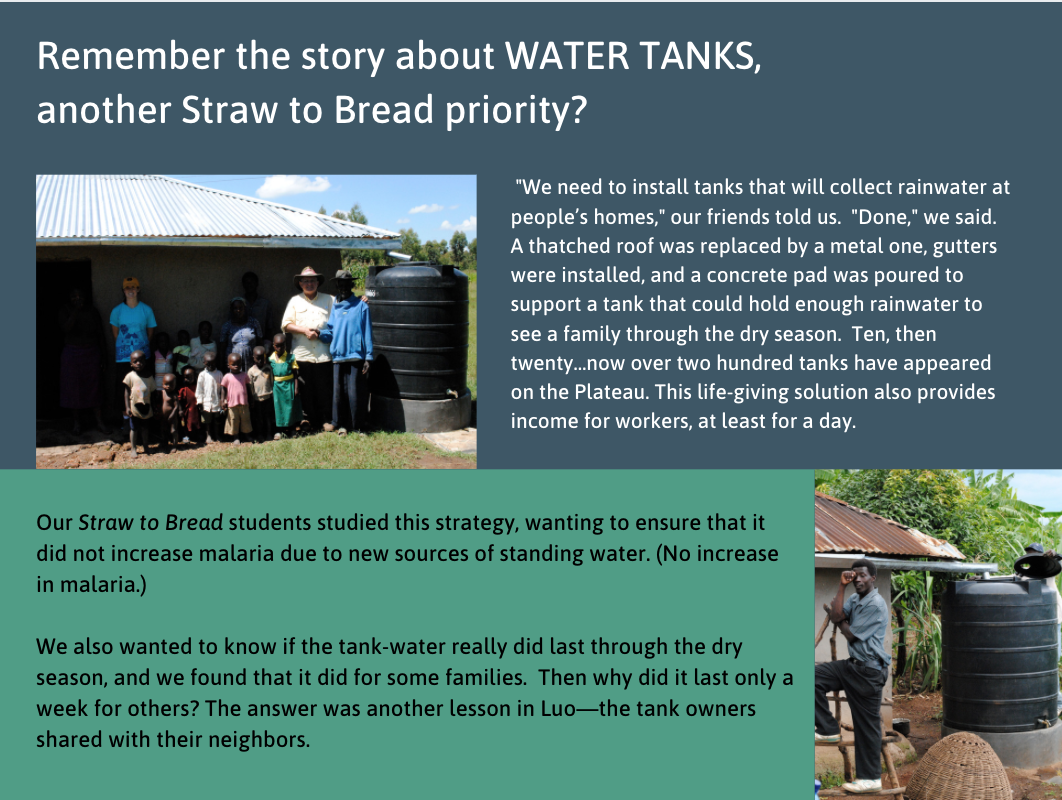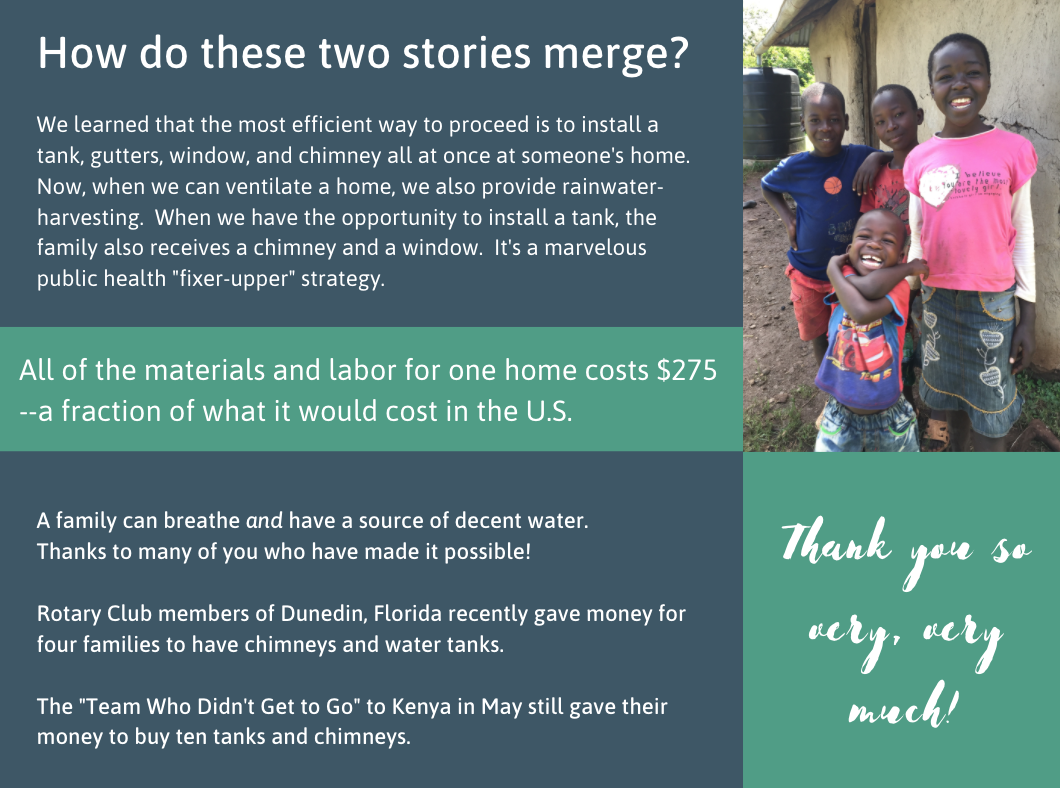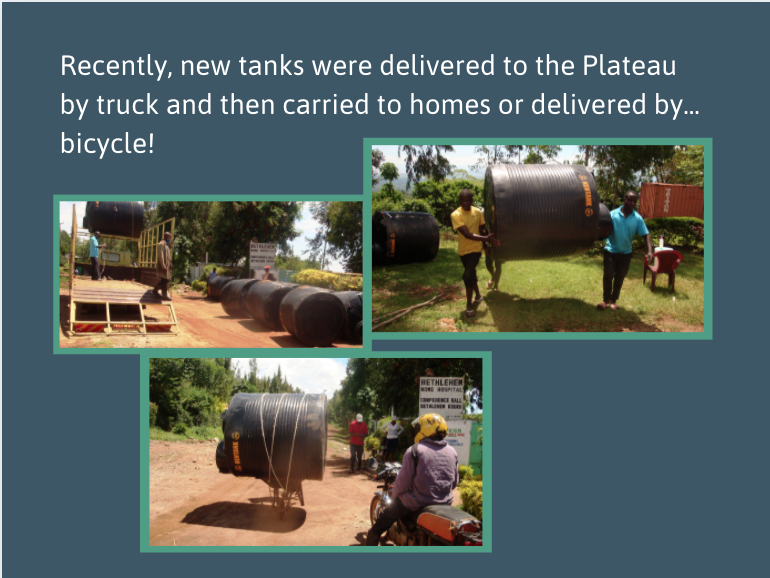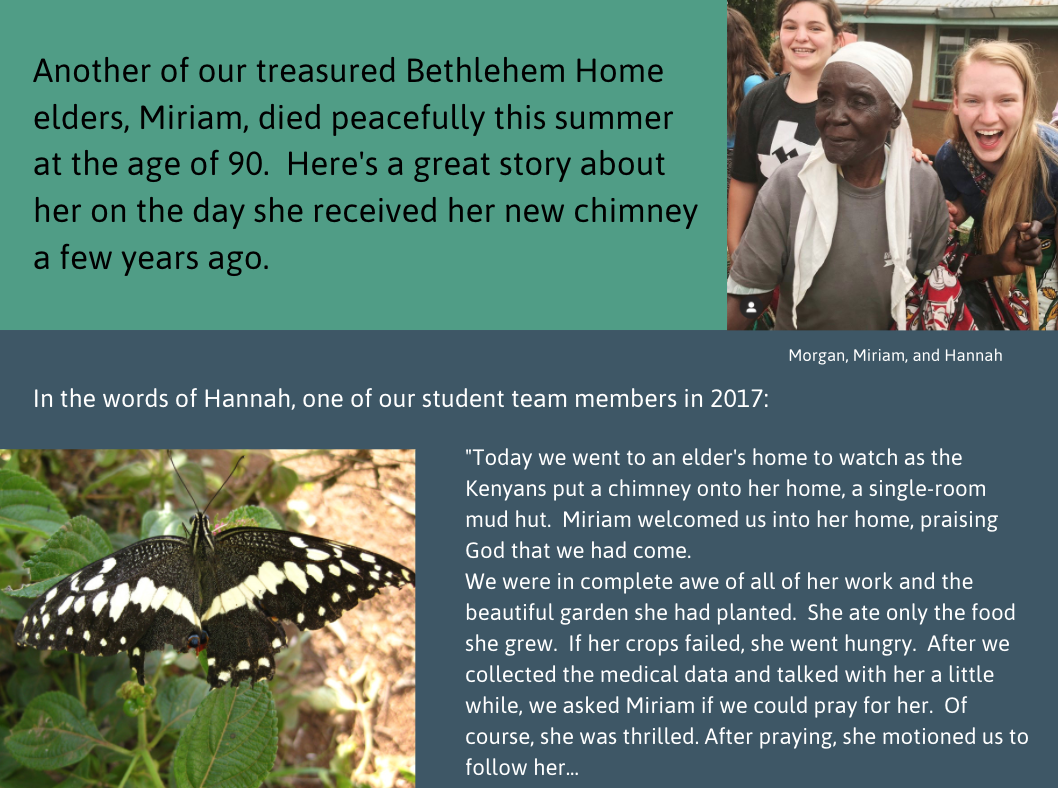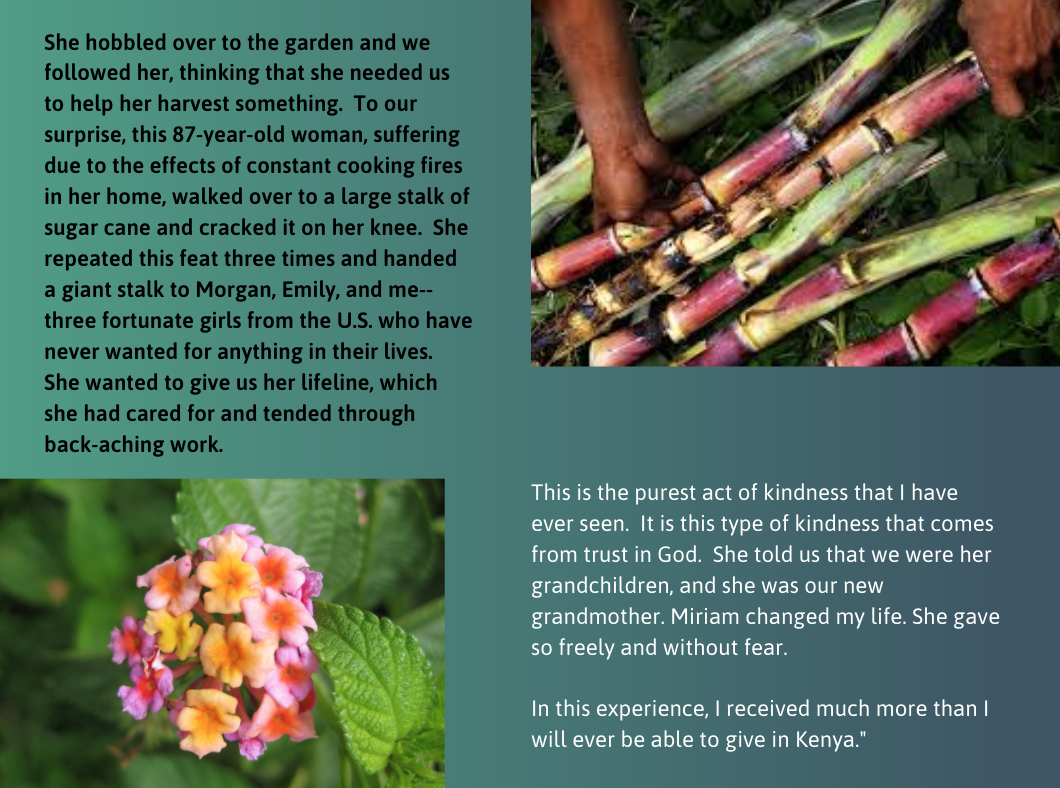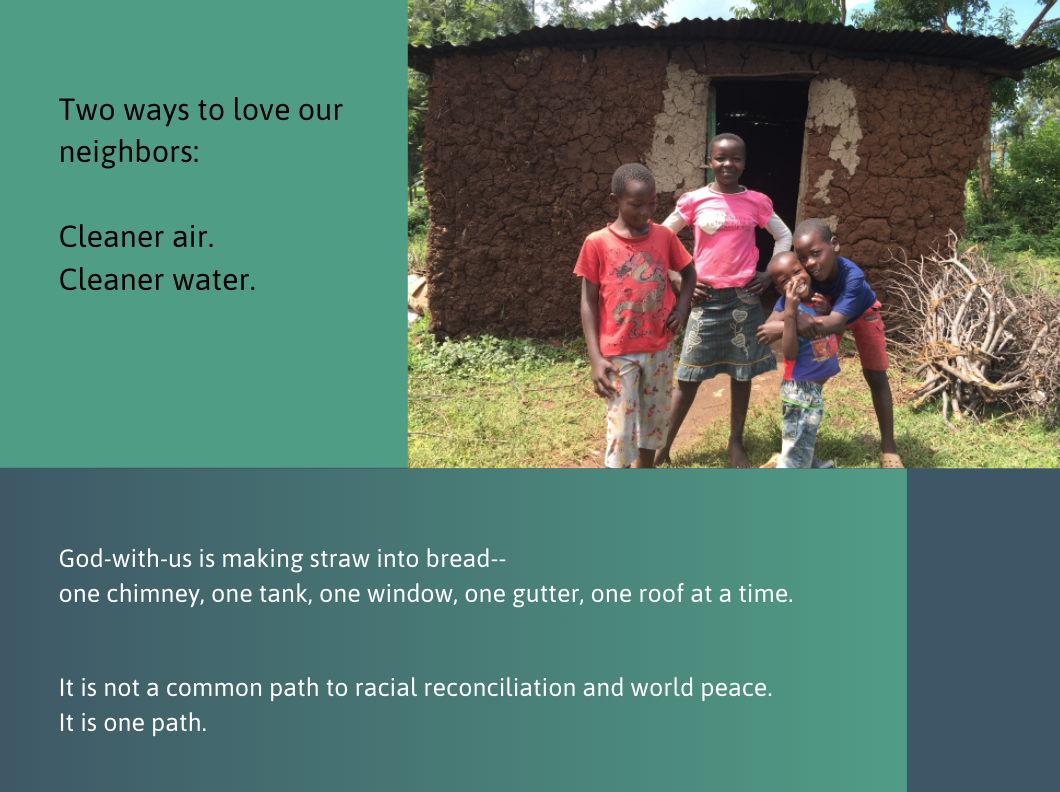raise the roof: a step toward justice
Do you know what causes more deaths worldwide than malaria, TB, and HIV/AIDS combined?
INDOOR COOKING FIRES.
Millions of women around the world, and all of those in our area of Kenya, still cook indoors over an open fire made from branches that they gather each day.
3.8 million people, mostly women, die prematurely each year from cooking fires.
It is dangerous for anyone who spends time around the fire--usually girls and their mothers. Toddlers often fall into the fire or get burned by pots of boiling water.
less obvious, but deadlier
Source: World Health Organization
Sub-Saharan Africa and India are the worst places in the world for indoor air pollution from cooking fires.
The smoke makes it hard to breathe, as you would expect, and increases pneumonia, lung cancer, and COPD. But it also causes heart attacks, strokes, eye disease, and other serious problems. We've been wondering for years why so many people on the Plateau have high blood pressure. Now we think we may know:
indoor air pollution.
what does straw to bread do?
Straw to Bread’s response to this problem is a great example of the organic way that things get done as we spend time with our local Luo partners, listening and enabling, as they identify problems and develop solutions that fit the situation. We’d love for everyone to have an efficient stove vented to the outside, and someday they will. What we could do immediately was to add ventilation by cutting holes in the roof and walls, i.e. adding chimneys and windows.
What is the way to peace and reparations in our deepening, global recognition of racial injustice? What is the path to “decolonializing” the field of Global Health? One way is to provide a chimney, a window, a water tank when our friends invite us to join them in their solutions to what they identify as their most pressing problems. We do it on their terms, with local workers and supplies. We get better as we go. We learn from research and from our mistakes. We trust their forgiveness. They trust our hope.




